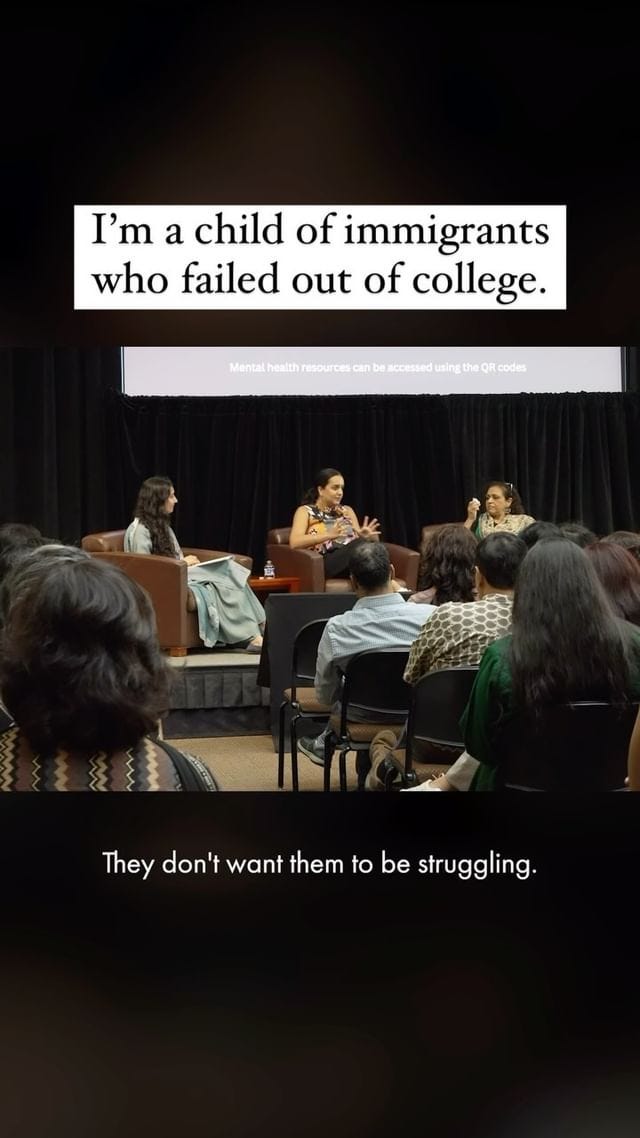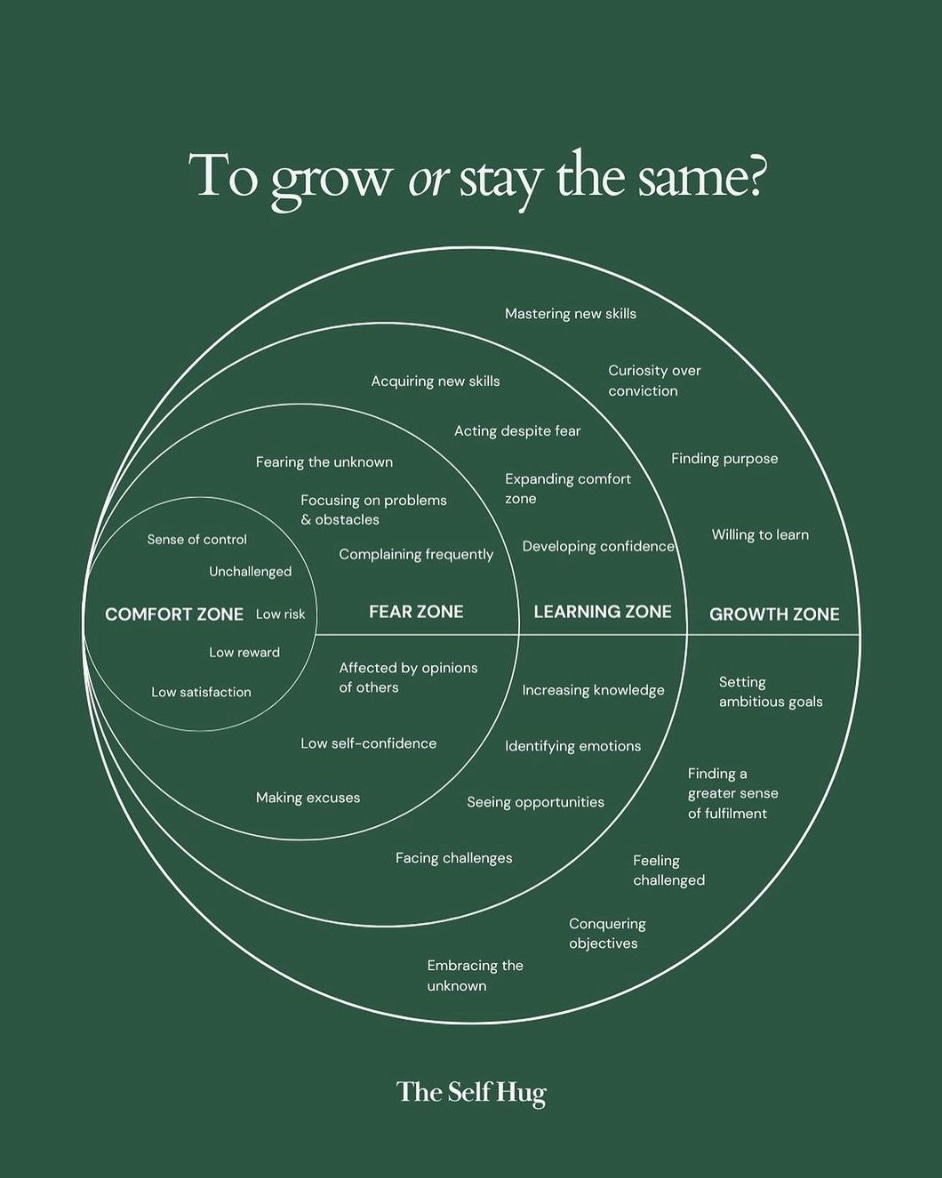Re-authoring your story of "being late" in life
Plus October resources and recommendations
In November, starting next week, we’ll be exploring what it means to grow up in a chaotic family. Our fist conversation club is Tuesday, November 5 at 7pm ET for paid subscribers. Link will be sent that day to join!
Hire me to speak at your company, ERG, conference, summit, classroom, school, nonprofit and more
Don’t forget to buy my book, or leave a review on Amazon or Goodreads.
Submit an anonymous question to my advice column
Here’s a moment on book tour in which I found myself being supported in my “late” or “wrong” timeline. This was so healing to me.
It’s easy to feel inadequate when we measure ourselves against anything—or anyone—other than who we really are. This may be a sibling, something you didn’t choose for yourself but that someone else wanted for you, or something your peers have attained that you haven’t. I write about this in my book because for the longest time (decades) I had a story about myself — I was a failure. And through getting out of my fear zone, unlearning a fixed mindset, and of course, therapy, I was able to re-author a new story for myself.
You're not "late." You're right on time. You're not running behind. You're setting your own pace. And you're not doing it wrong. You're on a different path altogether.
I love this reminder from Nabalo on Instagram on Japanaese word Oubaitori: This comes from four Japanese words: ou (cherry blossom), bai (plum blossom), tou (peach blossom), and ri (apricot blossom). These words together symbolize the concept that each person, like these trees, blooms in their own unique way and time. It is the graceful understanding that, like the cherry, plum, peach, and apricot trees, each of us blossoms in our own time. It teaches us to honor our personal journey, embracing the idea that there’s no need to rush or compare.
How to individuate as an adult
I have clients who are in their 30s, 40s, and beyond and are moving away from living near family for the first time, are traveling solo for the first time, are exploring sexual needs in a marital relationship, and so on because they were not allowed to do any of these things until they hit a certain milestone or because it’s frowned upon in their family and community.
One of the ways we work through is really exploring what is being given up by choosing a different or new path, and what is being gained if you were to do so. We also have to really interrogate my client’s approval seeking behavior. After all, approval seeking may be why you feel behind in life. You may be more concerned about what your parents, or others, think about what you do — and how it may or may not be what’s expected of you. This is natural. Remember that “catching up” does not mean
One way to unlearn this is to practice disappointing people. Stay with me here. Seeking approval from others is rooted in pleasing people. It’s not just that it helps you feel worthy, but it also validates that you are making someone else feel happy or comfortable, too. Growing up, seeking approval may have allowed you to get your own emotional needs met. Now, with friends or in groups, you may seek approval because it allows you to feel a sense of acceptance. It can be hard to accept that you may disappoint people. But disappointing someone and wronging someone are two very different things. So find a safe person to disappoint. This can look like setting micro-boundaries, saying no, or sharing something vulnerable about yourself. By practicing this in a safe relationship, it will help you build a tolerance for discomfort as well as confidence that neither the relationship nor your sense of self will crumble if you don’t get the external validation you have been used to.
You also want to rethink your "success" narrative. One small reframe that may be helpful: When you catch yourself naming your success or achievement, take a minute to consider how you got there. Was it through hard work? Being a good leader? Good time management skills? Now think about characteristics you've demonstrated in attaining certain successes — like persistence, problem-solving or creativity. Shifting from WHAT you did to HOW you did it turns the focus to your personal strengths & character - building a stronger internal sense of self.
Ask yourself:
What does it mean to go from comfort zone into fear, learning and growth zones? What are the fears that you have about changing your mind, taking a risk, doing something new?
Where does this story come from that you have to be a certain age to do certain things?
What are things you have done that you didn’t expect to or plan for? Think about big picture things (moves, career, achievements) and smaller, personal things (relationships, skills you’ve learned, lessons).
Benefits of being a “late bloomer”:
Sense of clarity and purpose in what you want. Knowing what you don’t want — and having experienced these — is as important as knowing what you do want. Sometimes our windy paths take us down roads we can definitively know to stop exploring, allowing us to carve new ones that feel more authentic to who we are and how we want to live our lives.
Humility and resilience. You know what it’s like to fail, to do something you don’t want. To be held to standards that feel suffocating and stifling. This gives you that much more empathy and humility in communal relationships.
Learned skills. Yes, maybe you didn’t ask for the skills you’ve learned along the way, but I’d argue they are likely transferable.
October Resources and Recommendations
On theme, I loved this essay by Malcolm Gladwell on being a late bloomer, and have this book I have yet to read called the same! I also want to encourage everyone to pre-order
’s book TOXIC PRODUCTIVITY, out in a few weeks! Pre-orders really help authors, so go check it out!I read some spooky books this month for *mood* and loved Her Majesty’s Royal Coven and Bride both as easy binge-able, distracting reads. I also watched Woman of the Hour, which was good/fine, but I listened to the Dating Game Killer podcast a few years ago and highly recommend that instead. I can’t wait to watch Sweet Bobby, but also really recommend the podcast (I devoured it)!
I loved this essay on writing in the hour of the genocide. And wanted to share this podcast I did with
:*Disclaimer: Culturally Enough. is not therapy, a mental health service, nor is it a substitute for mental health services of any kind. I am not showing up in this space as your therapist — I am showing up here as a curiosity-driven writer, peer, and a human. If you are looking for therapy, please consult with your local mental health resources.





